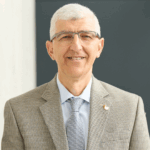News
-
Are Food Additives Affecting Our Metabolism? Dr. Rajesh Garg’s Research Offers Important Clues
Every day, most of us eat foods that were made to last: breads, tortillas, yogurts, cheeses, lunch meats with preservatives, ingredients added to keep them safe, stable, and appealing. But what if some…
ResearchDecember 19, 2025 -
Building a Future in Medicine: How Summer Fellow Bryce Tom Found His Place in Infectious Disease Research
Pursuing a future in medicine came with few doubts for Bryce Tom. With physicians as parents, Tom grew up recognizing the fulfillment his mother and father gained from their work, making it…
EducationDecember 17, 2025 -
Reframing HIV Prevention Through Community, Trust, and Equity
Every December, HIV Awareness Month urges us not only to reflect on medical breakthroughs, but also to confront the inequities that endure despite them. Modern antiretroviral…
Community, ResearchDecember 4, 2025 -
The Lundquist Institute’s Medical-Financial Partnership Awarded $3.42M from the Conrad N. Hilton Foundation to Expand Innovative Health and Financial Care Model
The Lundquist Institute is proud to announce that its Medical-Financial Partnership (MFP), co-directed by Monique Holguin, LCSW, PhD, and Adam Schickedanz, MD, PhD, has been awarded…
Community, ResearchNovember 13, 2025 -
The Lundquist Institute and Its Start-Up Company Vitalex Biosciences Announce Strategic Advancement of Second-Generation Fungal Vaccine VXV-01 Through Phase 1 Trials Under $40 Million Competitive Contract From NIH/NIAID
The Lundquist Institute (TLI) and its start-up company Vitalex Biosciences (Vitalex) are pleased to announce that the second-generation fungal vaccine candidate known as VXV01, which was…
ResearchNovember 12, 2025 -
From Battlefield to Bench: Jeff Chen’s Mission to Heal
When asked about his childhood, Jeff Chen will tell you he “wasn’t the brightest kid,” but what he really means is that he hadn’t found his…
CommunityNovember 11, 2025 -
The Heart of WIC: Marisela Montoya Turns Experience into Empowerment
When Marisela Montoya, EdD walks through the doors of the South Los Angeles Health Projects office each morning, she often takes a quiet moment to reflect.…
CommunityNovember 6, 2025 -
Honoring Discovery and Dedication: Legends 2025 Celebrates Innovation at The Lundquist Institute
The Lundquist Institute’s annual Legends celebration brought together a full house of faculty, partners, and friends for an inspiring evening dedicated to the power of science, collaboration, and…
Leadership, ResearchNovember 4, 2025 -
The Lundquist Institute Awarded $9 Million to Launch Community Center of Excellence for Regenerative Medicine
Christina Wang, MD, and Lynda Polgreen, MD, MS, investigators at The Lundquist Institute for Biomedical Innovation, have been awarded $9 million from the California Institute for Regenerative Medicine (CIRM) to…
CommunityOctober 30, 2025 -
The Lundquist Institute’s Dr. Dong Chang Receives $3.16 Million NIH Grant to Improve ICU Care and Shared Decision-Making
The Lundquist Institute is proud to announce that Dong Chang, MD, MS has been awarded a prestigious R01 grant from the National Institutes of Health (NIH)/National Institute on Aging,…
ResearchOctober 27, 2025









